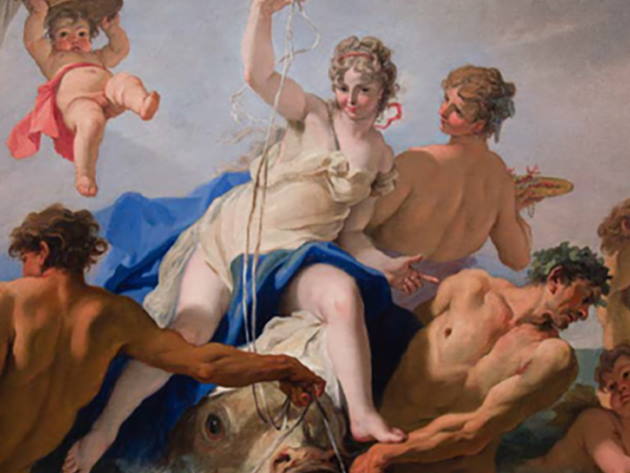
The Museum of Rome Palazzo Braschi hosts in its rooms, visible to the public for the first time, two paintings by the great Venetian painter Sebastiano Ricci belonging to Enel's art collections.
The paintings, most likely painted by Ricci in the early eighteenth century, during his stay in Florence, depict two mythological scenes: The Triumph of Venus, which depicts the goddess of beauty emerging from the waters of the sea, surrounded by nymphs and cupids in a profusion of color and movement that captures the viewer's attention.; Bacchus and Ariadne, on the other hand, represents the god of wine toghether with the Cretan princess Ariadne, abandoned by Theseus, surrounded by a bucolic and festive context, where joy and exhilaration reign. Both works exemplify the talent of the great Venetian painter and his extraordinary ability to harmonize classical and baroque elements in compositions full of balance and dynamism.
The two canvases, recently rediscovered, have undergone a careful restoration which has highlighted the extraordinary coloristic qualities of the paintings, as well as the ability to render the figures and details with great mastery. Ricci's style, which inaugurated a type of clear and luminous painting, with a scenographic compositional structure, was inspired by Paolo Veronese but also by the masters of the mature Baroque, such as Luca Giordano and had a great influence on the development of eighteenth-century Venetian art, anticipating the taste of the major Venetian painters of the age, first of all Giovanni Battista Tiepolo.
Sebastiano Ricci (Belluno, 1659 – Venice, 1734), was one of the greatest exponents of Baroque painting between the end of the seventeenth century and the first decades of the following century. Trained in Venice, he has operated in numerous Italian cities, including Bologna, Milan, Florence and Rome. In Rome, where he was active for the first time between 1691 and 1694, he painted the fresco with the Allegory of the Battle of Lepanto in the Hall of Landscapes in Palazzo Colonna, the Ascension in the sacristy of the Basilica dei Santi Apostoli and two large canvases of biblical subjects for Palazzo Taverna. Ricci, during his career as an artist, worked in some of the major courts of Europe: in Vienna from 1701, in London between 1711 and 1716, in Paris until 1718. The painter spent the last years of his life in Venice, where he died in 1734. His works are characterized by a skilful use of light and color and a lively representation of movement.
The exhibition, curated by Roberta Porfiri, is organized by Roma Capitale, Department of Culture, Capitoline Superintendency of Cultural Heritage and by Enel which availed itself of the collaboration of the Special Superintendence of Rome for Archaeology, Fine Arts and Landscape for the restoration.
Photo credits: courtesy of the Museum of Rome Palazzo Braschi official site
Informations
Dal 19 giugno 2024 al 12 gennaio 2025
dal martedì alla domenica ore 10.00-19.00
Ultimo ingresso un'ora prima della chiusura
24 e 31 dicembre 10.00-14.00
Giorni di chiusura
Lunedì, 25 dicembre
CONSULTA SEMPRE LA PAGINA AVVISI prima di programmare la tua visita al museo.
 Condividi
Condividi











































